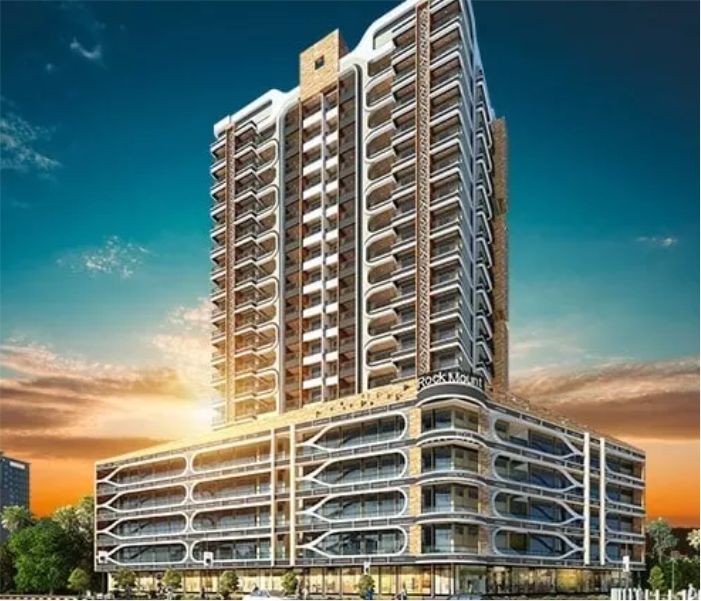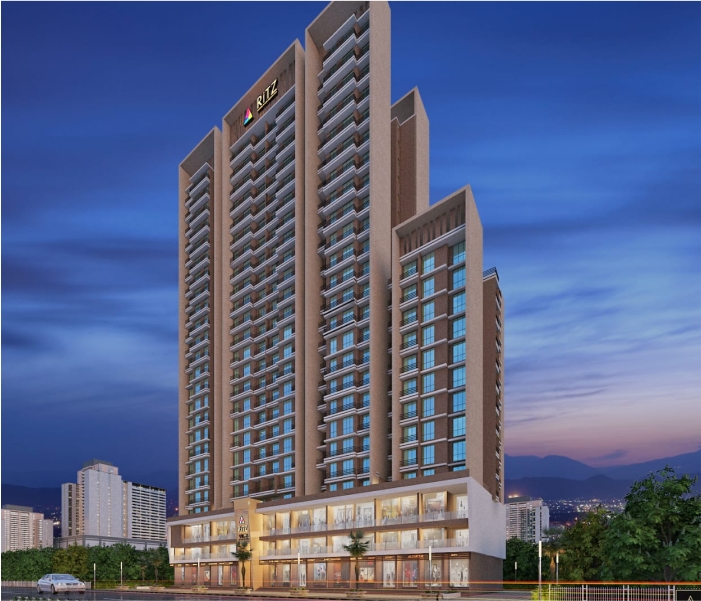
What is a Duplex and how it is different from a Penthouse, Villa and Independent House
If you are looking for a spacious and comfortable living space, you might have come across various terms such as duplex, penthouse, villa, and independent house. But do you know what they mean and how they differ from each other? In this blog post, we will explain the meaning, types, pros and cons of each of these housing options and help you make an informed decision.
Duplex
A duplex is a residential building that consists of two separate units on the same plot of land. The units can be side by side or on two floors, with separate entrances and a common wall. A duplex is usually owned by a single person or family, who can either live in both units or rent out one of them. A duplex can also be a part of a larger apartment complex, where the lower unit has access to a garden and the upper unit has a balcony or an attic.
Some of the advantages of living in a duplex are:
Privacy: A duplex offers more privacy than a regular apartment, as you do not have to share common areas such as lifts, corridors, or parking lots with other residents. You can also enjoy your own outdoor space, such as a garden or a terrace.
Space: A duplex provides more space than a single-floor apartment, as you can have separate living and sleeping areas. You can also use the extra space for a home office, a gym, a library, or a guest room.
Income: A duplex can be a source of income, as you can rent out one of the units to tenants and earn rental returns. You can also benefit from the appreciation of the property value over time.
Some of the disadvantages of living in a duplex are:
Maintenance: A duplex requires more maintenance than a single-floor apartment, as you have to take care of two units and their utilities. You also have to bear the cost of repairs and renovations, which can be higher than in a regular apartment.
Noise: A duplex can be noisy, as you may hear sounds from the adjacent unit or the street. You may also have to deal with complaints from your tenants or neighbors, if they are disturbed by your activities or vice versa.
Regulations: A duplex may have more regulations than a single-floor apartment, as you have to follow the rules of the apartment complex or the local authority. You may also have to pay higher taxes, fees, or charges for owning a duplex.
Penthouse
A penthouse is a luxurious apartment that occupies the topmost floor of a high-rise building. A penthouse usually has exclusive features such as large windows, high ceilings, spacious rooms, and premium amenities. A penthouse also offers stunning views of the cityscape, the skyline, or the natural surroundings.
Some of the advantages of living in a penthouse are:
Luxury: A penthouse is a symbol of luxury, as it offers a high-end lifestyle with all the comforts and conveniences. You can enjoy features such as a private elevator, a rooftop pool, a jacuzzi, a fireplace, a home theater, or a smart home system.
Exclusivity: A penthouse is a rare and coveted property, as it is only available to a few select buyers. You can enjoy a sense of exclusivity, as you do not have to share your floor with anyone else. You can also have more security and privacy, as you have fewer visitors or intruders.
Value: A penthouse is a valuable asset, as it has a high demand and a low supply in the market. You can expect a high return on your investment, as a penthouse can fetch a premium price or rent. You can also benefit from the appreciation of the property value over time.
Some of the disadvantages of living in a penthouse are:
Cost: A penthouse is a costly property, as it has a high price tag and a high maintenance cost. You have to pay a large amount of money upfront, as well as monthly charges for utilities, services, and amenities. You also have to pay higher taxes, fees, or charges for owning a penthouse.
Accessibility: A penthouse may have accessibility issues, as it is located on the top floor of a tall building. You may have to depend on the elevator, which can be slow, crowded, or malfunctioning. You may also have to face difficulties in case of emergencies, such as fire,
earthquake, or power outage.
Weather: A penthouse may have weather issues, as it is exposed to the elements. You may have to deal with extreme temperatures, strong winds, heavy rains, or snow. You may also have to protect your property from damage caused by storms, lightning, or birds.
Villa
A villa is a detached or semi-detached house that is usually located in a suburban or rural area. A villa typically has a large plot of land, a private garden, a swimming pool, and a garage. A villa is usually designed to suit the taste and preference of the owner, who can customize the layout, the style, and the features of the house.
Some of the advantages of living in a villa are:
Independence: A villa offers more independence than an apartment, as you do not have to share your property with anyone else. You can have your own entrance, your own parking space, and your own rules. You can also have more freedom to modify or expand your property as per your needs and wishes.
Comfort: A villa offers more comfort than an apartment, as you have more space and more amenities. You can have separate rooms for different purposes, such as a study, a playroom, a hobby room, or a gym. You can also have more facilities, such as a fireplace, a sauna, a barbecue, or a gazebo.
Lifestyle: A villa offers a better lifestyle than an apartment, as you have more access to nature and fresh air. You can enjoy the beauty and tranquility of your surroundings, such as a garden, a lawn, or a pond. You can also have more opportunities for outdoor activities, such as gardening, swimming, or cycling.
Some of the disadvantages of living in a villa are:
Isolation: A villa may be more isolated than an apartment, as it is located away from the city center and the urban amenities. You may have to travel longer distances to reach your workplace, school, hospital, or shopping mall. You may also have less social interaction with your neighbors or community members.
Security: A villa may be less secure than an apartment, as it is more vulnerable to theft, vandalism, or trespassing. You may have to invest more in security measures, such as fences, gates, alarms, or cameras. You may also have to rely more on external services, such as police, fire, or ambulance.
Responsibility: A villa may require more responsibility than an apartment, as you have to take care of your entire property and its utilities. You have to bear the cost and the hassle of maintenance, repair, and renovation. You also have to comply with the regulations and the norms of the local authority and the society.
Independent House
An independent house is a standalone house that is not attached to any other building or property. An independent house usually has a small plot of land, a front yard, a backyard, and a porch. An independent house is usually built according to the standard design and the features of the locality.
Some of the advantages of living in an independent house are:
Affordability: An independent house is more affordable than a duplex, a penthouse, or a villa, as it has a lower price and a lower maintenance cost. You do not have to pay any extra charges for utilities, services, or amenities. You also have to pay lower taxes, fees, or charges for owning an independent house.
Flexibility: An independent house is more flexible than a duplex, a penthouse, or a villa, as it can be easily modified or extended according to your requirements and preferences. You can add or remove rooms, change the color, or upgrade the features of your house. You can also use your property for commercial or rental purposes, if permitted by the local authority.
Simplicity: An independent house is more simple than a duplex, a penthouse, or a villa, as it has a basic design and a minimalistic style. You do not have to deal with any complex or fancy features, such as elevators, pools, or smart systems. You can also have a more relaxed and peaceful atmosphere, as you do not have to cope with any noise or disturbance from other residents or tenants.
Some of the disadvantages of living in an independent house are:
Limitation: An independent house is more limited than a duplex, a penthouse, or a villa, as it has less space and less amenities. You may have to compromise on your comfort and convenience, as you may not have enough rooms, facilities, or features. You may also have to sacrifice on your luxury and exclusivity, as you may not have any special or unique features.
Risk: An independent house is more risky than a duplex, a penthouse, or a villa, as it is more prone to damage or destruction due to natural or man-made disasters. You may have to face more challenges in case of fire, flood, earthquake, or war. You may also have to bear more losses in case of depreciation or devaluation of the property value over time.
Dependence: An independent house is more dependent than a duplex, a penthouse, or a villa, as it relies more on the external factors and the conditions of the locality. You may have to face more problems due to the lack or the poor quality of the infrastructure, such as roads, water, electricity, or sewage. You may also have to deal with the issues of the neighborhood, such as crime, pollution, or traffic.
Conclusion
As you can see, each of these housing options has its own advantages and disadvantages, depending on your needs, preferences, budget, and lifestyle. There is no one-size-fits-all solution, as each option has its own trade-offs and benefits. Therefore, you should carefully weigh the pros and cons of each option and choose the one that suits you the best.
We hope this blog post has helped you understand the difference bet
ween a duplex, a penthouse, a villa, and an independent house. If you have any questions or comments, please feel free to leave them below. Thank you for reading and happy house hunting!
Also Read About : Home Sweet Home: A Guide to Duplexes, Penthouses, Villas, and Independent Houses



Recent comments(1)
Supriya
nothing